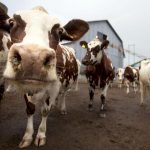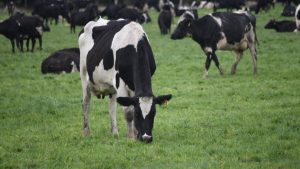
Dairy farming is the career we choose because we love the industry, and the quest for a strong balance sheet is part of that.
Yet even when the figures are looking good, the requirements of dairy farming – a career that involves living where you work and cows which need attention 365 days a year – can seem relentless.
A survey of the New Zealand dairy industry last year showed that 60 per cent of respondents said at least one of their team had experienced a mental health issue in the previous year.
Although to the best of my knowledge there has not been similar research in Australia, it’s not hard to imagine that there would be a similar result in this country.
While we are much more prepared to talk about mental health now, there is still an inherent unwillingness to acknowledge it in ourselves or our friends or work mates.
It seems at times we consider mental and physical health differently, and this may be at the root of why many are afraid to speak up or acknowledge they have an issue.
It seems at times we consider mental and physical health differently, and this may be at the root of why many are afraid to speak up or acknowledge they have an issue. If you break your arm, there is a course of action you take – you follow that and there is an outcome.
– Terry Richardson
If you break your arm, there is a course of action you take – you follow that and there is an outcome.
You get the x-ray, you may get surgery, you get another x-ray to check it’s okay and the episode is over.
Dealing with a mental health issue in comparison may appear to be complex, and could require ongoing treatment, much like some physical injuries require ongoing physiotherapy.
For some people, the problem may be with them for a lifetime but there are things that we can do which can help and we should strongly encourage people to seek that help.
The biggest fear that many of us have when we recognise that things are not right with a relative, a friend or a worker (or even ourselves) is that we don’t know how to help.
While you may not have the professional skills to help, you are able to reassure others that they are not alone, and that there are people who can help.
Knowing that you, your friend or worker can get help is reassuring not only to them, but to you as well.
A good season doesn’t guarantee well-being, nor does addressing particular issues like sourcing extra labour.
That very issue – the lack of workers – means some are working longer and longer hours simply to just carry out the basics.
Working smarter and not harder allows time to relax, go on a holiday or even take a bigger picture view of your business and make decisions and plans.
But you can’t do that if you don’t have people to fill in.
It’s one of the drivers behind the ADF advocating for government to take a multi-pronged approach to address the worker shortage.
At ADF, we also get caught up in the daily activities around policy and advocacy and while these are critical, we care deeply about the well-being of dairy farmers.
We are assessing the merits of developing a well-being program, specifically for dairy farmers in Australia.
We understand that much of our work in advocacy does lead to a better dairy farming environment and less business pressure on our farmers, but alongside this, the ADF needs to dedicate specific time to check in and support the well-being of dairy farmers.
Ideally, ADF would like to see specific research mirroring that done within the New Zealand industry to gauge the extent of mental health issues within the Australian dairy industry.
That understanding could allow us to tailor programs which could make the greatest positive impact.
We also appreciate fully that the good season many of us are lucky enough to be experiencing this year does not take all the pressure off and while paddocks may be full of feed and milk prices are strong, it’s by no means easy.
For almost 80 years, ADF has cared about the well-being of dairy farmers – and this will always be at the heart of what we do.
We are in the final throes of a new strategic plan, and for the first time we are including a focus area on mental health.
It’s important to us, and we know it’s important to you.
Whether it’s lobbying for things that farmers can easily see will make a difference like increasing the labour force to the less obvious planning around farmer health, we’re seeking better outcomes for our members.
So, my challenge for you is to look around your farm and ask yourself “what is my most valuable asset?” If that’s your rotary dairy and something was wrong with it, you wouldn’t hesitate to fix it – right?
Now, think again about your biggest asset – let’s say it’s you, your family or your fellow workers.
If any of them are not functioning at their best due to a mental health issue, why would you respond any differently?
Article supplied by Australian Dairy Farmers.

























